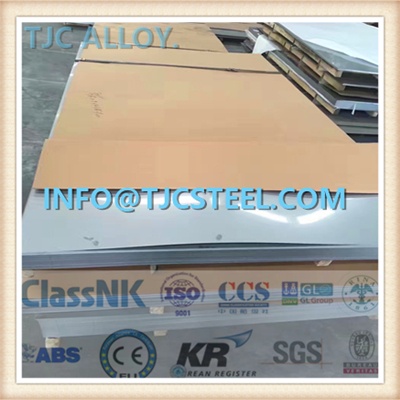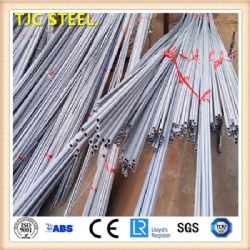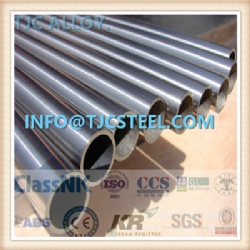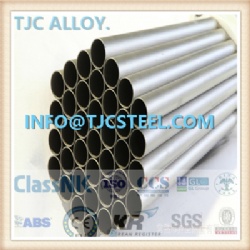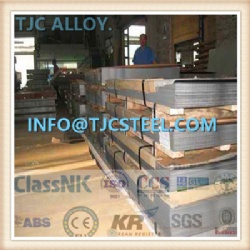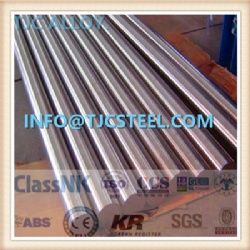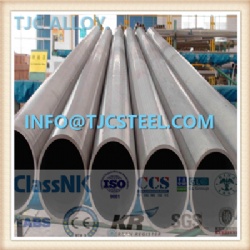Products >> Aluminium Alloy >>
Product Introduction of 3003 Aluminum Alloy Plate
- Product No.:20244612433
3003 aluminum alloy plate is a versatile material known for its excellent formability, corrosion resistance, and weldability. It belongs to the 3xxx series of aluminum alloys and is widely used in various industries due to its favorable properties.
Physical Properties:
3003 aluminum alloy plate exhibits a density of approximately 2.73 g/cm³, offering a good balance between strength and weight. It has a melting point of around 660°C and a thermal conductivity of approximately 190 W/m·K.
Size Range:
3003 aluminum alloy plate is available in various sizes and thicknesses, typically ranging from 0.2 mm to 300 mm in thickness. Widths can extend up to 2650 mm, and lengths can reach up to 16000 mm, catering to diverse application requirements.
Chemical Composition:
The typical chemical composition of 3003 aluminum alloy plate is as follows:
- Aluminum (Al): 98.6% min
- Silicon (Si): 0.6% max
- Iron (Fe): 0.7% max
- Copper (Cu): 0.05% - 0.20%
- Manganese (Mn): 1.0% - 1.5%
- Zinc (Zn): 0.1% max
- Others (each): 0.05% max
- Others (total): 0.15% max
Mechanical Properties:
- Tensile Strength: 130 MPa (minimum)
- Yield Strength: 115 MPa (minimum)
- Elongation: 20% (minimum)
Hardness:
3003 aluminum alloy plate typically exhibits a Brinell hardness of approximately 41 HB.
Standard Compliance (ASTM B209, JIS H4000):
3003 aluminum alloy plate complies with international standards such as ASTM B209 and JIS H4000, ensuring quality and consistency in production.
Non-Destructive Testing Standard:
Standard non-destructive testing methods, including ultrasonic inspection, are employed to ensure the quality and integrity of 3003 aluminum alloy plates.
Corrosion Resistance:
3003 aluminum alloy offers excellent corrosion resistance, particularly in environments exposed to moisture and chemicals. It is suitable for applications requiring resistance to corrosion.
Heat Treatment Condition:
3003 aluminum alloy plate is not heat treatable, as it is a non-heat-treatable alloy. It retains its properties at ambient temperatures and does not require heat treatment for strengthening.
Main Applications:
- Construction: Roofing, siding, and architectural components.
- Food and Beverage: Food packaging, cans, and cooking utensils.
- Automotive: Heat exchangers, fuel tanks, and body panels.
- HVAC: Air conditioning ducts and heat exchangers.
- Marine: Boat hulls, pontoons, and marine components.
TJC Steel Supply Case:
TJC Steel supplies 3003 aluminum alloy plates, adhering to international standards such as ASTM B209 and JIS H4000. They ensure that the products meet rigorous quality requirements, providing reliable solutions for various applications across industries.
Conclusion:
3003 aluminum alloy plate is a versatile material suitable for a wide range of applications due to its excellent formability, corrosion resistance, and weldability. With adherence to international standards and availability in various sizes, it meets the diverse needs of customers in construction, automotive, food and beverage, HVAC, and marine industries.
Products Category
Contact Us

Tel: +86-371-86107816
Fax: +86-371-63797816
Mobile: +8613674998777
E-mail: info@tjcsteel.com
Skype: tjccarl
Add: Floor 16, 25#, Fortune Plaza, Zhengzhou, Henan, China

